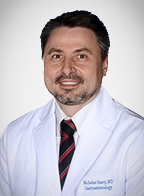Nicholas M. Szary, MD
Inova providers are Inova's premier primary care and specialty physicians and providers, offering top-notch medical expertise, full access to Inova facilities, and the convenience of integrated electronic medical records.
Inova providers are Inova's premier primary care and specialty physicians and providers, offering top-notch medical expertise, full access to Inova facilities, and the convenience of integrated electronic medical records.


Nicholas M. Szary, MD
Inova providers are Inova's premier primary care and specialty physicians and providers, offering top-notch medical expertise, full access to Inova facilities, and the convenience of integrated electronic medical records.
Inova providers are Inova's premier primary care and specialty physicians and providers, offering top-notch medical expertise, full access to Inova facilities, and the convenience of integrated electronic medical records.

Patient Reviews
About Patient Comments
The Patient Rating score is an average of all responses to physician related questions on our nationally-recognized Press Ganey Patient Satisfaction Survey. Responses are measured on a scale of 1 to 5, with 5 being the best score. Comments are gathered from our Press Ganey Patient Satisfaction Survey and displayed in their entirety. Patients are de-identified for confidentiality and patient privacy.